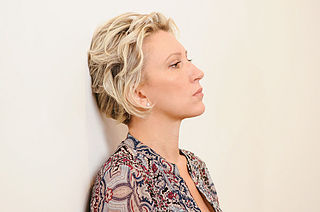A Quote by Elizabeth McCracken
Acknowledgment of grief - well, it makes feeling the grief easier, not harder.
Related Quotes
I'm part of the tribe who have said goodbye to one parent and are feeling a sense of responsibility for the one who remains - in my case, my mother. How do I make her time smoother, happier? How do I try to ease her, a widow, away from the dark well of grief without dishonoring the necessity of that grief?
All those years I fell for the great palace lie that grief should be gotten over as quickly as possible and as privately. But, what I've discovered is that the lifelong fear of grief keeps us in a barren, isolated place, and that only grieving can heal grief. The passage of time will lessen the acuteness, but time alone, without the direct experience of grief, will not heal it.
Grief is real because loss is real. Each grief has its own imprint, as distinctive and as unique as the person we lost. The pain of loss is so intense, so heartbreaking, because in loving we deeply connect with another human being, and grief is the reflection of the connection that has been lost. We think we want to avoid the grief, but really it is the pain of the loss we want to avoid. Grief is the healing process that ultimately brings us comfort in our pain.



































